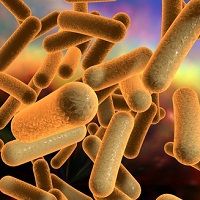Article
Fecal Transplants Effective for Healing Ulcerative Colitis
Author(s):
It is widely known that fecal microbiota transplantation (FMT) is effective for the treatment of recurring Clostridium difficile (C. diff) infection, but new research supports the procedure’s efficacy for helping patients with ulcerative colitis (UC).

It is widely known that fecal microbiota transplantation (FMT) is effective for the treatment of recurring Clostridium difficile (C. diff) infection, but new research supports the procedure’s efficacy for helping patients with ulcerative colitis (UC).
According to findings presented at Digestive Disease Week 2016, researchers in Australia enrolled 81 UC patients who were resistant to standard non-biologic treatments. There were 41 study participants who received FMT and 40 patients who received placebo treatment through a colonoscope.
Patients were then given enemas that were self-administered five days per week for a total of eight weeks.
Three times as many FMT patients responded to treatment than those in the control group, the researchers reported in a statement, while a quarter of the cohort — 11 of the 41 FMT patients – reported no UC symptoms.
Additionally, in those patients, doctors determined that the lining of their digestive tracts healed or substantially improved, the study authors said. Only three of the 40 placebo patients reached that goal. Nearly half of the FMT patients reported being symptom free compared to only 20% of the control group.
“In recent years, researchers have gained a better understanding of the gut microbiota and the critical role it plays in health and disease, including conditions like UC,” said Sudarshan Paramsothy, MD. “By using fecal microbiota transplantation, we aim to treat the underlying cause of UC instead of just its symptoms, as opposed to the majority of therapies currently available.”
Previous research in this area observed conflicting outcomes and was severely limited by small study size, Paramsothy continued.
“Our study is the first multi centered trial that uses an intense therapy of FMT infusions, 40 over eight weeks, and has been able to show definitively that fecal microbiota transplantation is an effective treatment for UC. This is important because there are millions of people worldwide seeking alternative treatments for their condition. This population is accustomed to using enemas as part of previous treatment, so our approach would not be unusual to them.”




